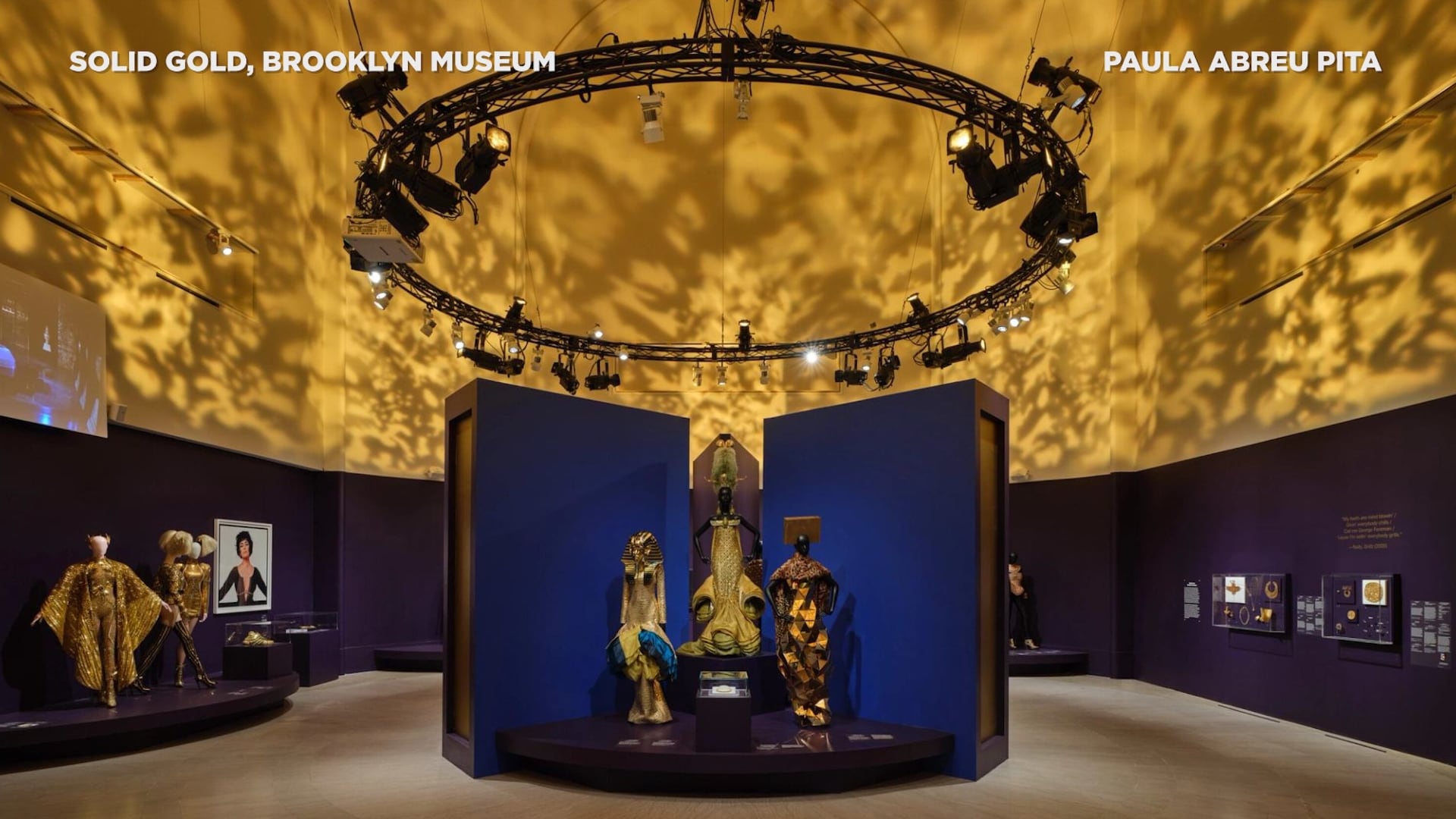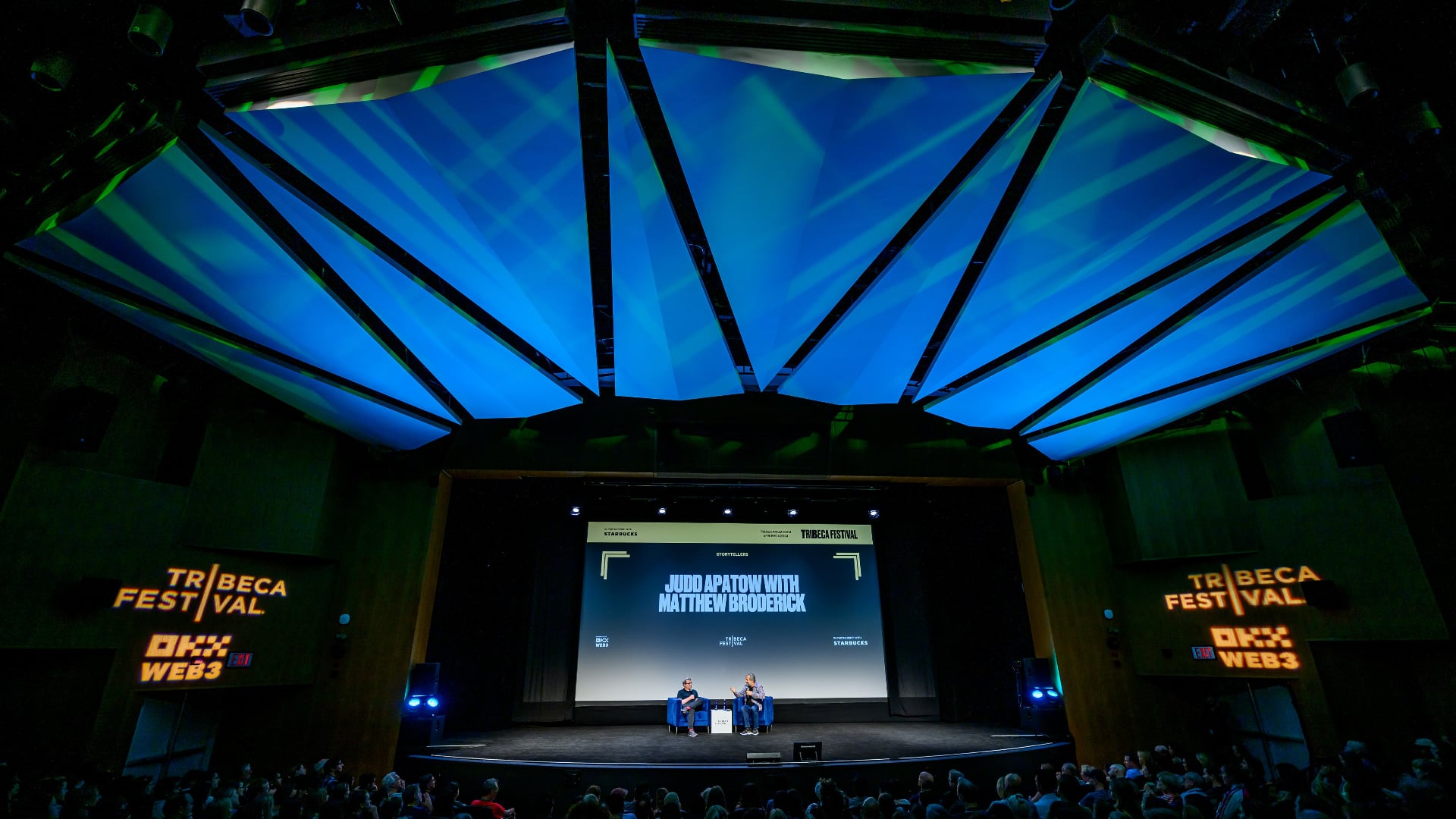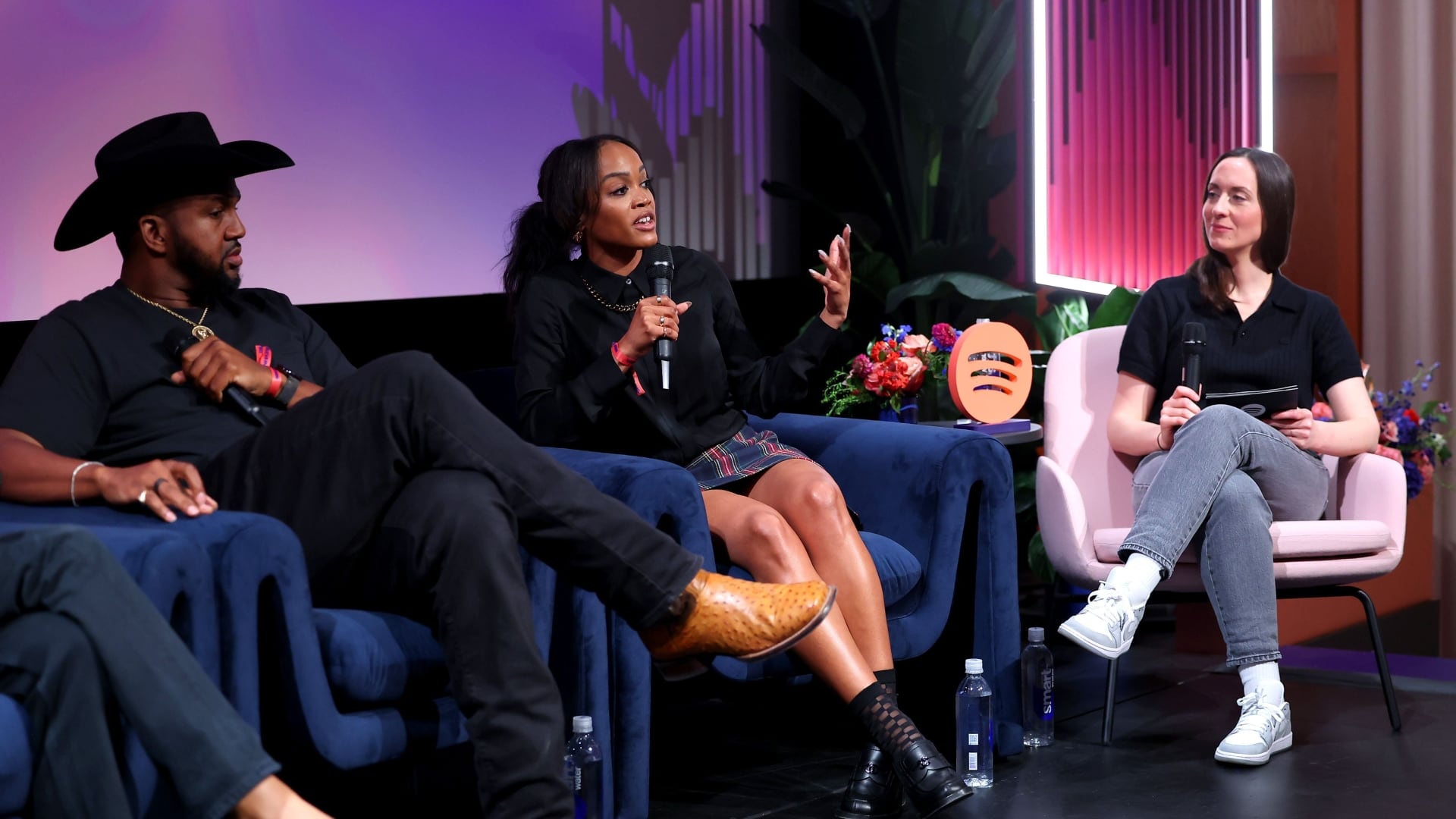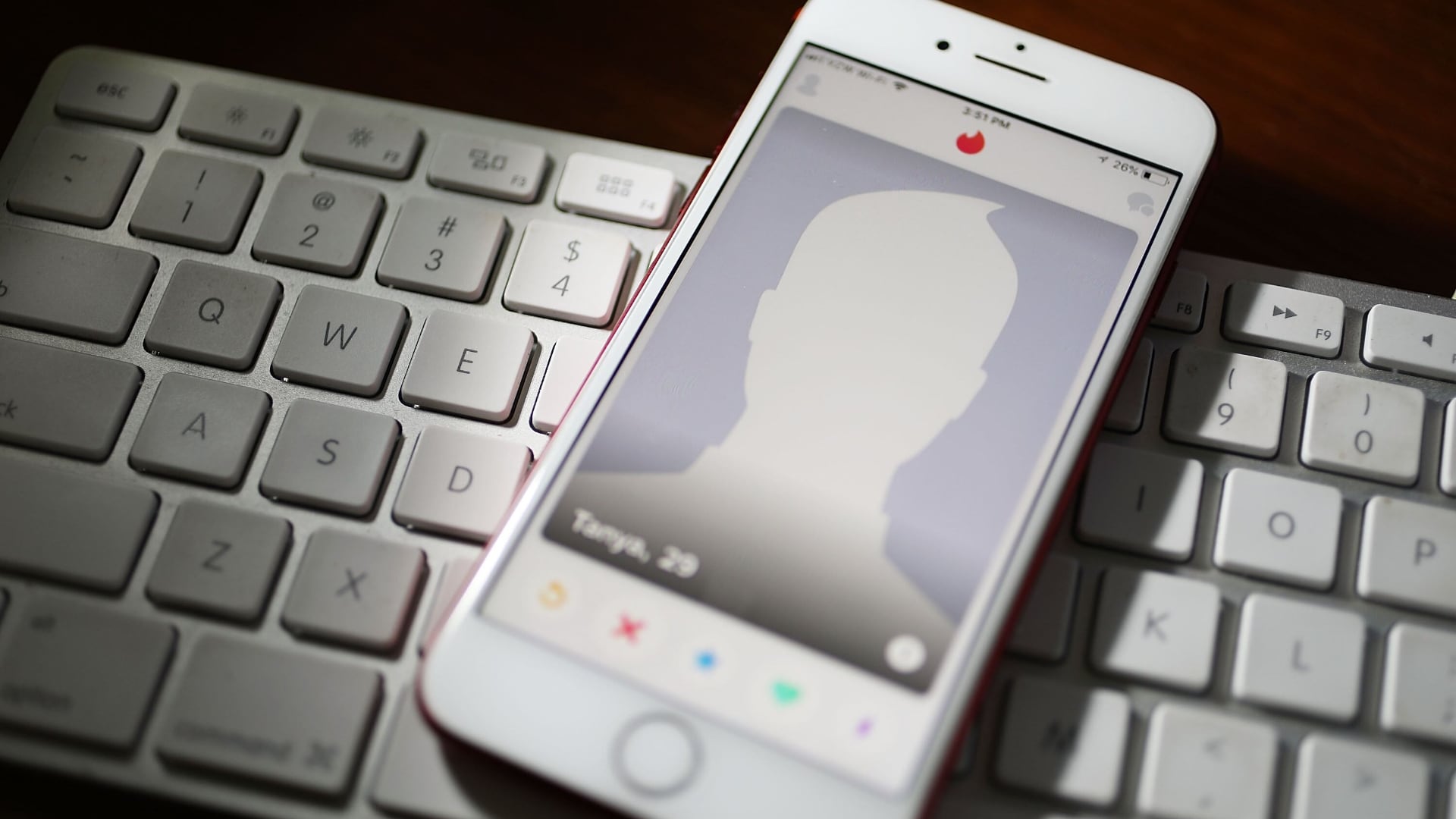While public health officials and healthcare experts at the World Health Organization are at work trying to understand the new virus and formulate guidance for health officials, its social media team is working behind the scenes to disseminate helpful information and curb the spread of misinformation.
As fake news spreads, in what WHO social media manager Aleksandra Kuzmanovic described as an "info-demic," the international body has developed a two-pronged approach in its battle against incorrect info — partnering with social media platforms to direct users to reliable sources and finding and responding to inaccurate rumors or falsehoods circulating the internet.
In recent days, popular platforms like Facebook and Twitter have been directing users to the WHO for information, which Kuzmanovic said is part of the partnership. She said these companies and others like TikTok and Pinterest have "really stepped up in this outbreak" by working with WHO and creating dedicated tools and pages with updates and advice.
"Most social media platforms worldwide, but also in China, are linking, directing their users to WHO or local health authorities to the information or providing our updates or streaming our pressers or Q&As with our experts where we are directly responding to our users' questions and concerns," she said.
However, not everyone has made their way to the WHO's site for accurate data, so the organization is tackling the misinformation online as well, such as rumors about how to cure the disease, speculation about how the virus evolved, and negative comments made toward the people of China at the original epicenter of the outbreak.
"We are using social media to listen and monitor what are peoples' concerns and what are the rumors spreading and then we are responding to these with evidence, science-based responses," Kuzmanovic said.
Fake cure claims have been circulating online that range from ridiculous to downright dangerous.
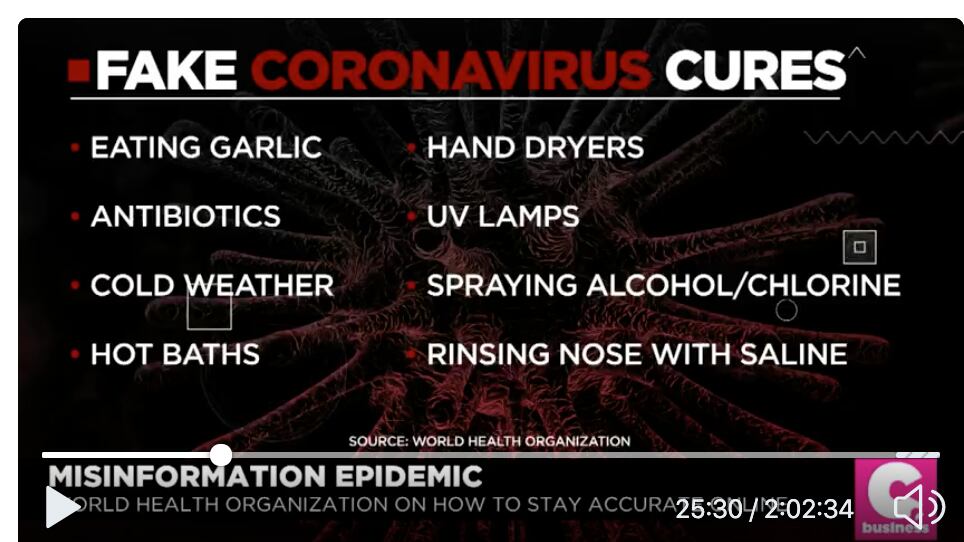
The WHO provided Cheddar with this partial list of unfounded coronavirus cures that are spreading throughout the internet, such as soaking in alcohol and eating garlic. In addition to fake cure rumors, Kuzmanovic said she has seen questions about pneumonia vaccines and the potential of warm weather to potentially eradicate the virus, neither of which are applicable or true.
However, Kuzmanovic said she has seen a "big improvement to access to reliable information" in the weeks since the novel coronavirus was first reported.


